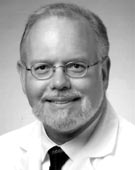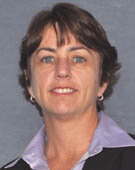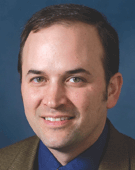How the implementation of molecular diagnostics can have a positive impact on patient care and financial growth
 |
 |
 |
YOUR PRESENTERS:
Frederick L. Kiechle, MD, PhD, Medical Director, Clinical Pathology,
Pathology Consultants of South Broward, LLP
Kathleen M Murphy, PhD, Director of Clinical Laboratory Operations, ProPath
Gregory A. Hosler, MD, PhD, Pathologist, ProPath
LISTEN LIVE! AUGUST 25, 2010 at 1 PM EST
![]()
Molecular diagnostics are transforming the way your lab tests for infectious diseases and solid tumors. Increasingly, molecular tests supplement and often replace conventional diagnostic assays. They’re also being used to obtain prognostic data, and in some cases dictate therapy.
Molecular-based infectious disease assays enhance client/physician satisfaction by providing diagnostic information that yield quick results, making clinical decisions much easier. As a result, clinicians are increasingly asking for these tests.
Traditionally, pathologists have been the experts on diagnostic assays, helping physicians determine the most appropriate laboratory tests for their patients. But with the new assays being marketed directly to clinicians, they’re ordering tests themselves, bypassing the pathologist. As a result, pathologists are starting to see a reduction in their position as decision-maker when it comes to choosing the most appropriate tests.
As a pathologist, it’s critical that you stay current on the latest trends in molecular testing to preserve your role in patient management. Do you have the most current information on infectious disease testing? Are the new assays really faster and more accurate than conventional ones? How will you deal with the complexities and challenges of the new tests? And what are the benefits of these tests to both doctors and their patients?
Get the answers to these questions and more when you attend the latest Dark Report and DarkDaily.com audio conference “Molecular Diagnostics for Community Hospital Labs: Hitting Clinical and Financial Home Runs in Infectious Disease and Oncology Testing” on Wednesday, August 25, 2010. Listen as our panel provides details of the most commonly requested tests and offers insight into how to handle clinician requests for the new assays.
You’ll get details on the latest solid tumor molecular assays and find out what assays to expect in the future. Learn how to compare the different types of assays and determine when it’s appropriate to advise against a test, send tissue out, or bring a test in-house.
How do you decide which tests to perform in-house and which ones to outsource to other labs? Does it make sense for your lab to develop molecular diagnostics capabilities to detect infectious agents? Treatment decisions often can’t wait the 2-4 days that reference labs need to turn these tests around. So if faster results help you prevent more infections, doesn’t it make sense to do them in-house?
And of course it’s not only about the clinical benefits, which can be substantial. There are financial considerations as well. When a reference lab test is brought in-house, the cost savings can be significant. But there are additional expenses to consider. Find out how the implementation of infectious disease-based molecular diagnostics can have a positive impact on patient care and financial growth when you register to attend this very special event.
Let our experts show you how to ensure that your community hospital lab continues to be an invaluable resource that helps clinicians choose the right tests at the right time. Whether you’re a community-based pathologist, clinical lab director or hospital administrator, this is one session you can’t afford to miss.
THE DARK REPORT AUDIO CONFERENCE AT A GLANCE
|
For one low price-just $195 (through 8/13/10; $245 thereafter), you and your entire team can take part in this fast-paced, insightful audio conference. Best of all, you’ll be able to connect personally with our speakers when we open up the phone lines for live Q&A.
 Here’s just some of what you’ll learn during this in-depth 90-minute conference:
Here’s just some of what you’ll learn during this in-depth 90-minute conference:
- The definition of a molecular assay and, in broad terms, a description of how they’re used.
- The clinical value of rapid turnaround results for infectious disease molecular assays.
- The solid tumor molecular diagnostics assays that are now considered routine.
- The relationship between outreach client numbers and molecular test volume.
- How cost avoidance can financially justify establishing MRSA and enterovirus molecular testing.
- The financial outcome of bringing molecular assays from the reference lab to your local clinical lab.
- The impact of genome patents on clinical molecular testing implementation.
- How to evaluate send-out resources and decide when it’s right to use them.
- The utility of some available proprietary molecular assays.
- A comparison of FISH and amplification-based methods.
- The equipment your lab needs to do molecular diagnostic testing.
- A basic algorithm to help you decide when to bring a molecular diagnostic assay in house.
…and much more!
Your audio conference registration includes:
- A site license to attend the conference (invite as many people as you can fit around your speakerphone at no extra charge)
- A downloadable PowerPoint presentations from our speaker
- A full transcript emailed to you soon after the conference
- The opportunity to connect directly with the speaker during the audience Q&A session
Register Now! Or for more information, call us toll-free at 800-560-6363.
Frederick L. Kiechle, MD, PhD has been the Medical Director of Clinical Pathology for the five-hospital (1792 beds) Memorial Healthcare System, working for Pathology Consultants of South Broward, LLP since 2006. The laboratory system performed 7.9 million tests in 2009. From 1988 to 2005 he was chairman of the Department of Clinical Pathology and from 1993 to 2005, the Medical Director of Beaumont Reference Laboratory at William Beaumont Hospital. That laboratory performed 6.5 million tests in 2004. Dr. Kiechle initiated molecular diagnostic testing and the annual William Beaumont Hospital DNA Symposium in 1991. He has directed basic research in signal transduction pathways in insulin action and apoptosis and has published extensively on the subject. Dr. Kiechle is the author of the best-selling laboratory management book, The Hitchhiker’s Guide to Improving Efficiency in the Clinical Laboratory, published by AACC Press, and co-editor of Molecular Diagnostics: Techniques and Applications for the Clinical Laboratory, published by Academic Press. He lectures internationally on basic research topics, point-of-care testing, automation, laboratory design, outreach program and molecular diagnostics.
Kathleen M Murphy, PhD is the Director of Clinical Laboratory Operations at ProPath. Her training includes a B.S. in Medical Technology from the University of Virginia, and a PhD from the University of Louisville. She completed post-graduate training in the Mid-Atlantic Cancer Genetics Network and the Molecular Pathology Fellowship at Johns Hopkins University. Prior to joining ProPath, Dr. Murphy was the Director of the Molecular Diagnostics Lab and an Associate Professor of Pathology and Oncology at Johns Hopkins University.
Gregory A. Hosler, MD, PhD is a practicing pathologist at ProPath. He specializes in dermatopathology and molecular pathology. His training includes a B.S. at Princeton University and an MD and PhD from The University of Texas Southwestern Medical Center. His PhD is in the field of immunology at the School of Biomedical Sciences. He completed his AP/CP Pathology residency training and dermatopathology fellowship at The Johns Hopkins Hospital. He holds the title of Clinical Assistant Professor at The University of Texas Southwestern Medical Center and works closely with Dr. Murphy at ProPath in the Molecular Diagnostics Division.
ACCENT® Continuing Education Credit
The American Association of Clinical Chemistry (AACC) designates this program for a maximum of 1.5 ACCENT® credit hours towards the AACC Clinical Chemist’s Recognition Award. AACC is an approved provider of continuing education for clinical laboratory scientists in the states of California, Florida, Louisiana, Montana, Nevada, North Dakota, Rhode Island, and West Virginia.



